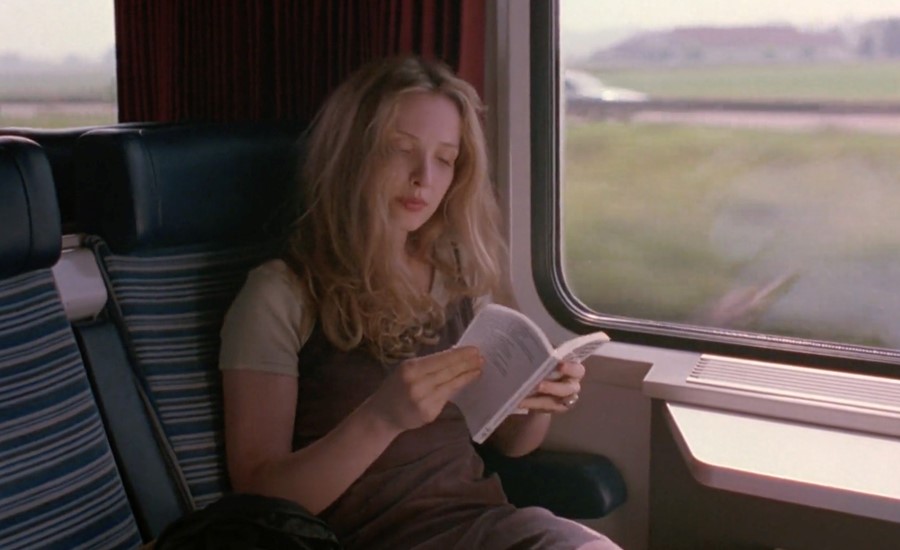From Jen Beagin’s Hudson-set tale of an obsessive sex therapist to reissues of classic novels, here are the books to add to your reading list this summer
This summer it seems like everyone I know is either getting married or breaking up, with little in between. Obviously this is wildly anecdotal, but if it rings in any way true, then this is a reading list skewed to you. More generally, when it comes to holiday – not just summer – reads, it’s taken me a long time to get in any way good at curating the books that I take. A very close friend and I recently cracked that, when travelling together, instead of each optimistically taking five books, we should pool all our reads and swap each as we finish them. I think a similar logic applies to the selection you take too. Nobody is saying bring Ulysses (necessarily!) but a nice balance between a book you can race through by the pool with a sangria and one that requires more close attention is always good. Best are the books that can be both, for instance Jen Beagin’s Big Swiss. What follows is a list that encompasses marriage, divorce, pain and Flights.
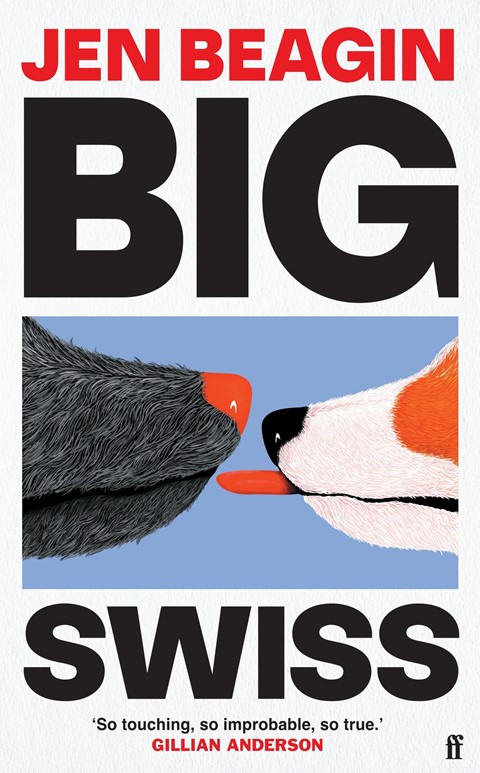
Big Swiss by Jen Beagin
What is summer for if not an insane-making crush? Taking an obsession that borders on stalking as its main theme, Big Swiss centres around Greta, an indiscreet transcriber for a new age sex therapist, Om. Through listening to recordings of their sessions, Greta falls hard for Om’s patient Flavia, (or Big Swiss, as Greta christens her), a crush that’s consummated by an in-person encounter at their local dog park.
In a sense, Big Swiss is about the extent to which love takes place in our own heads, and the way in which desire can warp the reality of another person: To Greta, Flavia’s voice is, “sweet enough to suck on, to sleep with in your mouth.” But as Flavia tells it: “My voice is like a blade… it sounds like I’m ordering someone’s execution.” Set in Hudson, New York, the novel is peopled by a cast of ageing misfits seeking fresh starts from a laundry lists that spans divorce, suicide, assault. Beagin manages to avoid veering into trauma plot territory by the fact that everything, at all times, is being played for laughs. (It was also a delight to read about the unfettered desire of an older female protagonist – I’d recommend Vladimir by Julia May Jonas along these lines too).
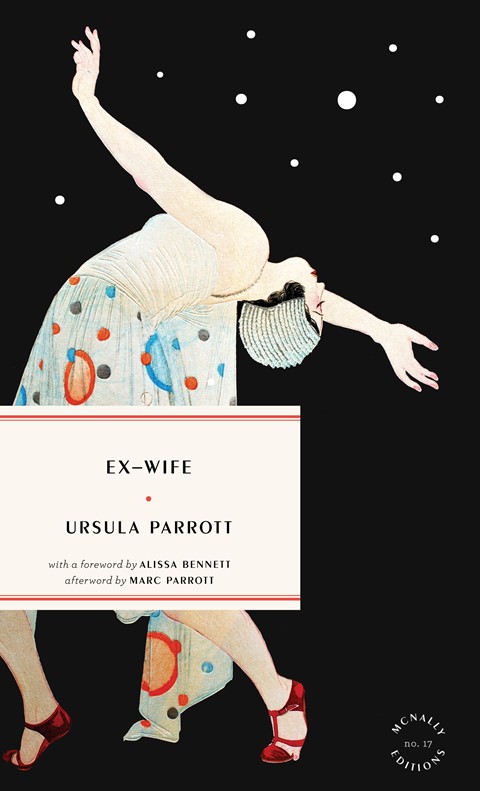
Ex-Wife by Ursula Parrott
I discovered Ursula Parrott’s 1929 Ex-Wife through this excellent conversation on AnOther with the writer Alissa Bennett, who wrote the foreword for McNally Editions’ reissue of the novel this past May. I was quickly sold on comparisons to Edith Wharton and Jean Rhys, and the promise of lines like: “I thought of him kindly, as someone with whom I had shared a painful post-adolescence, someone who no doubt had been as bewildered as I about most things.” I don’t think anything could have prepared me, though, for how much I’d love the narrator, Patricia: incredibly funny, and with a total lack of self-pity. I found that I didn’t want her to go by the novel’s close.
The overlap between Parrott’s life and the novel means I now feel compelled to read the Marsha Gordon biography of Ursula Parrott mentioned in the interview too. As Bennett says, “In the foreword, I write about Patricia spending her whole cheque on Chanel, or Helena Rubinstein, or buying Vionnet dresses that she can’t afford. I remember reading it, and just thinking, “It’s what we do.” Exorcising pain by ornamenting your exterior. Which is the amazing thing also when you look at Ursula Parrott’s life: that is exactly how she lived.”
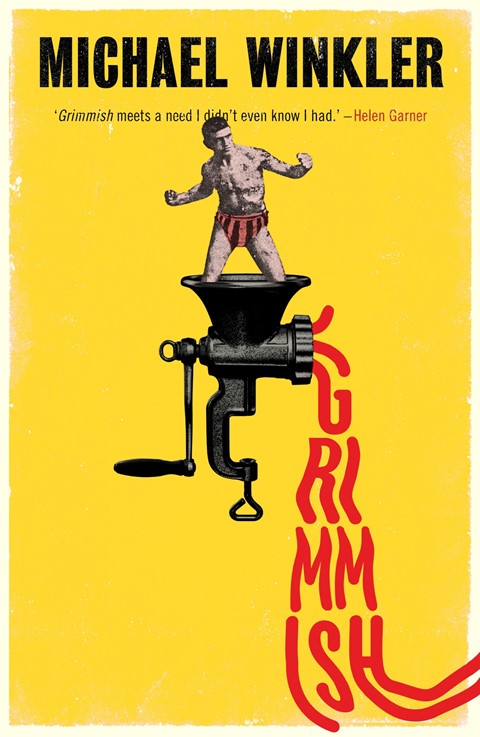
Grimmish by Michael Winkler
“Why write a book about pain when there are many sunny aspects of the human condition that could be written about instead?” the narrator of Michael Winkler’s Grimmish asks his uncle, around 50 pages into this strange, electrifying book. (A footnote seems to answer: “All writing is garbage,” Antonin Artaud).
The brilliantly lurid cover, which includes an endorsement from Helen Garner, first drew me to this fictionalised account of the Italian-American boxer Joe Grim’s 1908 visit to Australia. A book that’s difficult to describe without falling back on cliches like ‘genre-defying’ – “There is no narrative arc, close to zero love interest, skittish occasional action, incident rather than plot, and a narrator who is intermittently compelling but prevaricates and self-deludes like a broody prince at Elsinore,” reads the fake negative review of Grimmish that it opens with – it’s a compellingly original study of pain, manliness and storytelling.
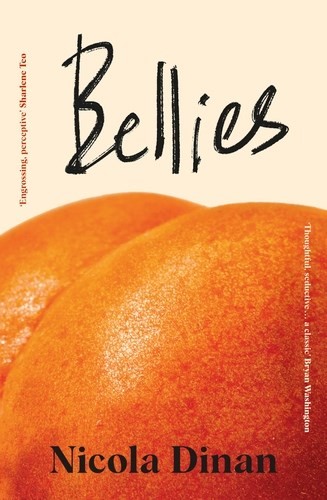
Bellies by Nicola Dinan
Out later this month, Nicola Dinan’s debut follows Tom and Ming as they meet at a university party, fall quickly in love, and embark on a life together in London that is upended by Ming announcing their intention to transition. I tend to avoid most campus or coming-of-age novels if I can – something about their typical brand of earnestness and the grappling for a sense of self just isn’t for me – but I put my reservations aside for Bellies, as it came highly recommended, and I’m glad I did.
From the very outset Dinan pokes fun at early-adult attempts to forge a queer identity: “She’d come out after I had, but in a few short months she’d acquired a buzz cut, found a new girlfriend called Lisa, and pretended to understand Judith Butler.” It might seem a little lazy, or reductive, to draw a comparison between Bellies and Torrey Peters’ Detransition Baby, but it feels apt in terms of both novels’ knowing, wry tone, and deft prose as much as their overlapping subject matter.
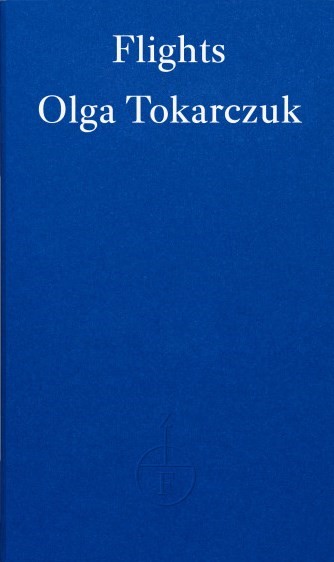
Flights by Olga Tokarczuk
Flights is probably the book that I recommend most often as a holiday read – I like the synchronicity in the fact that it is, literally, a book about travel. (It even has a tiny section on travel-sized toiletries: “It is as if the cosmetics industry sees the phenomenon of travel as mirroring sedentary life, but in miniature, a cute little baby version of the same.”)
I realised recently that I was probably overdue a reread, and it’s been like discovering a completely new book, and again is a revelation. It’s hard to do justice to Flights, in that it’s both a series of fragments and digressions that skips easily between centuries – one section traces the journey of dead Chopin’s heart from Paris back to Poland – and a plotted novel. “I conceived of that book as a constellation novel, a novel in fragments – I was looking for a new kind of realism to depict the scattered realities we live in,” Tokarczuk said in an interview.
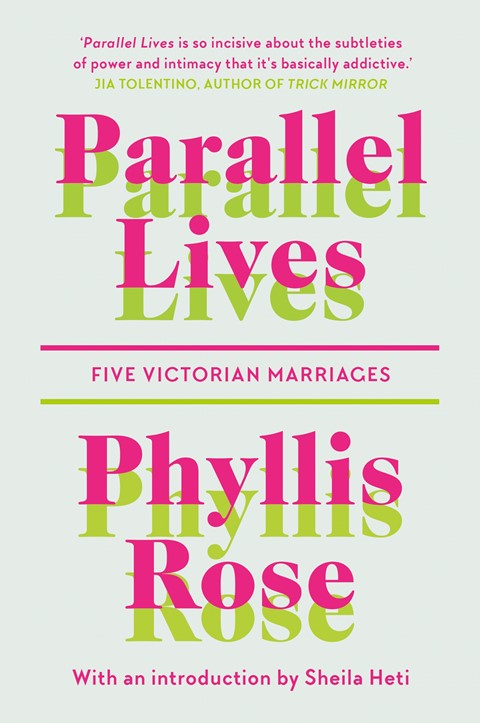
Parallel Lives by Phyllis Rose
I used to say that I loved gossip unequivocally, and I know that it’s the fashionable line to have currently. But I’m finding more and more that a certain kind of gossip makes me uneasy: it’s so impossible to grasp the complexities of any situation until it has happened to you, and there is a tendency to moralising in some gossip that I find faintly Presbyterian. All of which is to say that Phyllis Rose’s 1983 classic, Parallel Lives: Five Victorian Marriages, which got the reissue treatment with a Sheila Heti introduction a few years ago, is the good kind of gossip.
By interrogating the institution of marriage through a succession of good, bad and very strange relationships – including Jane Welsh and Thomas Carlyle, Effie Gray and John Ruskin, Harriet Taylor and John Stuart Mill – Rose offers a model for looking at the lives of others with nuance, empathy and a lack of judgement. (It should be stressed that no interest in Victorians is necessary, the book is gripping whether you care about Dickens or not). Parallel Lives also makes for a chic wedding present.
